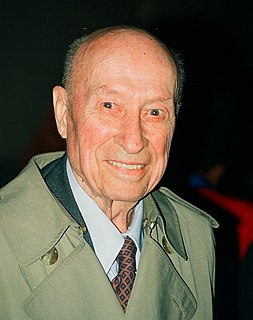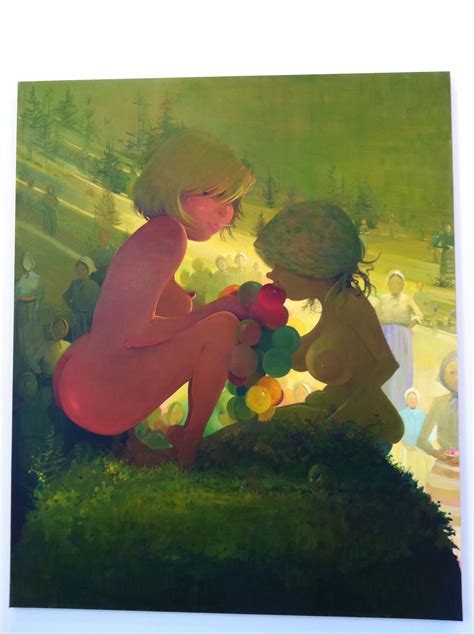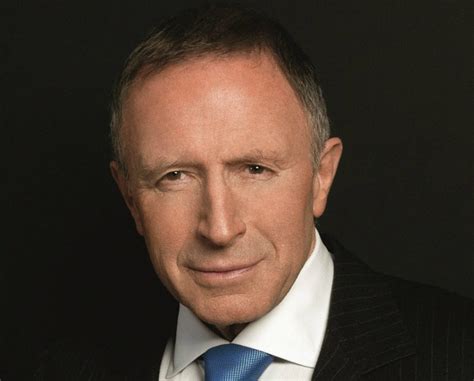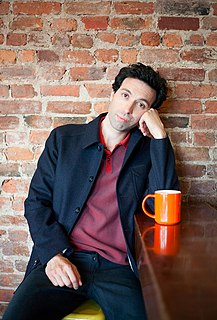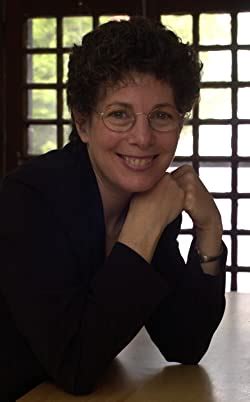A Quote by Beverly Pepper
In the end, I feel that one has to have a bit of neurosis to go on being an artist. A balanced human seldom produces art. It's that imbalance which impels us. I often think that all I want to do now is to avoid suicide, accidental or otherwise. Other than that, I think living on the edge is what drives my work and me beyond a certain point. The artist lives with anxiety. When you finally reach a plateau of achievement, there comes a new anxiety - the hunger to push on still further. That angst is what makes you go forward.
Quote Topics
Accidental
Achievement
Angst
Anxiety
Art
Artist
Avoid
Balanced
Being
Being An Artist
Beyond
Bit
Certain
Certain Point
Drives
Edge
End
Feel
Finally
Forward
Further
Go
Human
Hunger
Imbalance
In The End
Lives
Living
Living On
Living On The Edge
Makes
Me
Neurosis
New
Now
Often
Other
Otherwise
Plateau
Point
Produces
Push
Reach
Seldom
Still
Suicide
Than
Think
Us
Want
Which
Work
Related Quotes
Deep within every human being there still lives the anxiety over the possibility of being alone in the world, forgotten by God, overlooked among the millions and millions in this enormous household. One keeps this anxiety at a distance by looking at the many round about who are related to him as kin and friends, but the anxiety is still there, nevertheless, and one hardly dares think of how he would feel if all this were taken away.
Anxiety is the experience of growth itself. In any endeavor, how do you feel when you go from one stage to the next? The answer: You feel anxious. Anxiety that is denied makes us ill; anxiety that is fully confronted and fully lived through converts itself into joy, security, strength, centeredness, and character. The practical formula: Go where the pain is.
I'm attracted to the work of younger artists, and it's affordable compared to mature art, so you can take a chance much easier on a younger artist. I can't say that I've found an artist who I think is going to be the next Bacon or Warhol. You shouldn't have to do that really. You go forward, and you find something new.
Anxiety is so pervasive in my work, it's like it's not even a thing because it's always there. Like air. I have to work through a layer of anxiety to get to anything else. It's embarrassing to me when people point out to me all the anxiety I portray in my work. I don't ever want to write about anxiety again but it'd be like leaving a huge gap in the picture.
There questions of wanting to be an artist, and what does that mean, what makes you an artist? Are you an artist if you're in a gallery in New York and not an artist if you're doing it at home? Do you need legitimation to count? If you've been acculturated to believe that you have certain obligations - familial, social, human - if multitasking has been your forte and that's what's been praised and rewarded, where do you find the single-mindedness, the selfishness to do something like art? I think those are questions that arise differently for women and for men.
I do have commitment phobia, which I think is underlied by death anxiety. I feel that if you are in a relationship, there is a real genuine possibility of plateauing, and there is a possibility for a creative, emotional and spiritual death because of it. Only part of me feels this way, but it's enough to create an anxiety which makes me think twice before committing.
What makes someone an artist? I don't think is has anything to do with a paintbrush. There are painters who follow the numbers, or paint billboards, or work in a small village in China, painting reproductions. These folks, while swell people, aren't artists. On the other hand, Charlie Chaplin was an artist, beyond a doubt. So is Jonathan Ive, who designed the iPod. You can be an artist who works with oil paints or marble, sure. But there are artists who work with numbers, business models, and customer conversations. Art is about intent and communication, not substances.
When I was setting out to be an artist, I said: If I can just produce one work that some people think is good, if I can become an obscure cult artist, that's all I want. Well, I attained that. I'm an obscure cult artist, and I think now, Why didn't I say I want to be another Picasso or something? What other options were open to me? But I was convinced I couldn't achieve great things because I don't have a steady-state mind.
To be an artist is not about fame; it's about art, which is this intangible thing that has got to have lots of integrity, whereas being famous doesn't really take any integrity. But I think you have to admit that you want to be famous, otherwise you can't be an artist. Art and fame together are like a desire to live forever.

